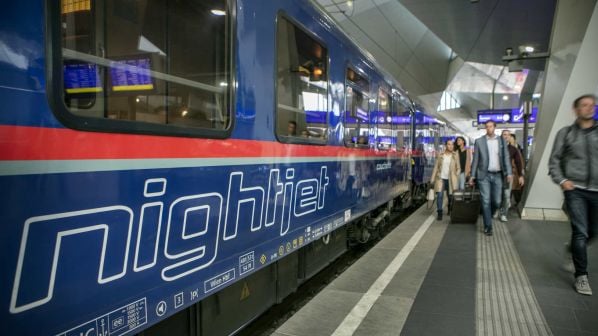SBB says demand for international rail services has grown significantly during the first half of this year, aided by increasing awareness of sustainability and measures to protect the climate.
As ÖBB’s Nightjet service linking Zürich and Basle with Berlin and Hamburg has reached its maximum capacity due to strong growth, the two railways are studying how to meet demand. The overnight service between Zürich, Innsbruck, Salzburg and Prague is currently operated only with sleeping cars, so the two railways together with Czech Railway (CD) are examining whether couchette cars can be added to the train.
SBB and ÖBB are also assessing which cities can be added to the Nightjet network to provide more overnight connections to Switzerland - Zürich is already the second biggest hub for overnight services in Europe after Vienna.
In addition, the two operators are keen to improve the economic viability of overnight trains through initiatives such as a CO2 levy and reducing track access charges.
“I assume that this development is sustainable and the demand for environmentally-friendly and resource-saving mobility will increase, especially among young customers,” says SBB’s CEO Mr Andreas Meyer.
“We are convinced of the success of the Nightjet,” says Mr Andreas Matthä, ÖBB’s CEO. “That's why we continue to invest and have already ordered 13 new Nightjet sets of the latest generation. The production of the trains is just starting, and in the course of 2022 the new trains will be in service.”
Day service
In the meantime, the frequency of the EuroCity day service linking Zürich with Munich will be doubled in December 2020 from three to six round trips per day when electrification of the German section of the route is completed.

